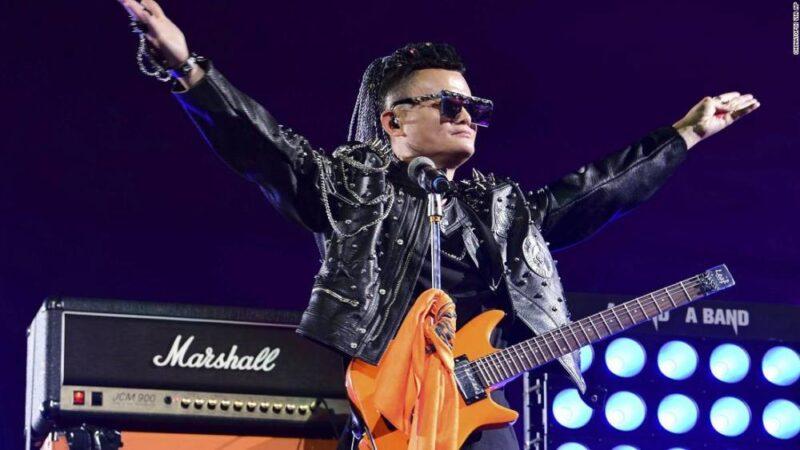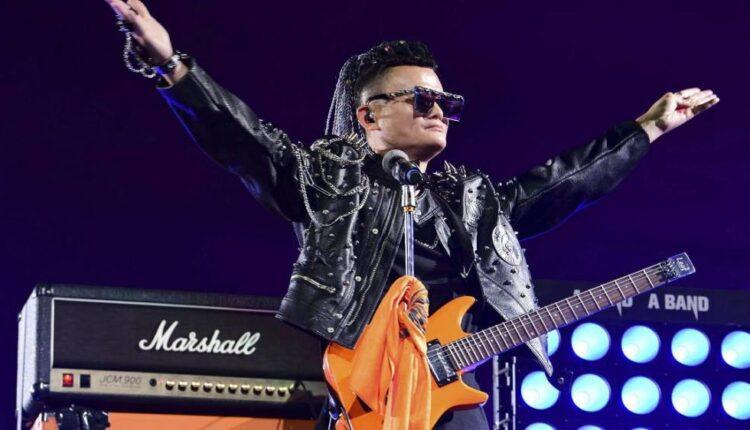Tokyo (CNN Business)Billionaire Jack Ma is a rare figure in China: a charismatic entrepreneur who speaks his mind and pushes boundaries.
That free-wheeling attitude made the Alibaba (BABA) co-founder renowned inside and outside of his home country. But it also appears to be putting his business empire — and Ma himself — at enormous risk.The trouble started in late October after Ma criticized China’s regulators at a conference in Shanghai. As Ma’s financial tech firm Ant Group was preparing for the world’s largest initial public offering, he accused authorities of stifling innovation and blasted the country’s banks for having a “pawn shop” mentality.
Beijing’s retaliation was swift. Within days, regulators called off the IPO, but not before summoning Ma and Ant executives to a meeting. In the weeks since then, regulators have ordered Ant to restructure large swaths of the company. They even extended their scrutiny to Alibaba, which is now the subject of an antitrust investigation. Ma, meanwhile, hasn’t been seen in public since he gave his speech in Shanghai — a notable absence for a man who typically has no issue with the spotlight, and whose businesses now face their biggest threat in years. Read More”I think there’s one overall message that the party is really sending, and that is that tech entrepreneurs may be the most glamorous, the most publicly favorable face that China is showing to the world,” said Rana Mitter, professor of history and politics of modern China at Oxford University. “But there is no one individual, no one company bigger than the Chinese Communist Party.”Many observers of China say Ma is most likely lying low as authorities turn up the heat on his businesses, having gotten the hint about speaking out of turn.But it’s also not unlike Beijing to doll out severe punishment for prominent Chinese figures who clash with the interests of the Communist Party.Superstar actress Fan Bingbing, for example, abruptly dropped out of sight in 2018 before reappearing a year later to apologize for a tax evasion scandal. And real-estate tycoon Ren Zhiqiang disappeared for several months last year after he allegedly criticized President Xi Jinping’s handling of the coronavirus pandemic. He was eventually jailed for 18 years on corruption charges.
A larger-than-life figure
A former English teacher with humble beginnings, Ma has long personified China’s economic prosperity and entrepreneurial grit. He built Alibaba into a $500 billion tech empire and amassed a personal fortune of some $50 billion, according to the Bloomberg Billionaires Index. As his companies, grew, Ma became the friendly face of China’s economic rise. He frequently met with heads of state — Ma has lunched with former President Barack Obama and taken selfies with former UK Prime Minister David Cameron — and last year even donated Covid-19 supplies around the world. Ma’s style as an executive at Alibaba was unabashedly flamboyant, too: Once, he sang the 1950s classic “Unchained Melody” on stage at a company conference, often dressed up in costumes and appeared at events with celebrities like David Beckham and Nicole Kidman.

Jack Ma performs at Alibaba’s 20th-anniversary celebration in Hangzhou, Zhejiang province, China in 2019.On one level, Chinese authorities liked that Ma represented a high-powered and glamorous version of China “because one of the things the Chinese Communist Party has found it almost impossible to do is to create soft power in the world,” said Mitter, the Oxford professor.The government has encouraged the growth of its home-grown tech giants, including Alibaba, Ant Group, Tencent (TCEHY) and Baidu (BIDU), while shutting out their big American rivals. They’re all largely indispensable in China for social interaction, entertainment, commerce and more.But authorities in China increasingly view that outsized influence as a risk to the country’s political and economic stability. Ant Group, for example, is able to collect lending fees free of the tough regulations imposed on commercial banks. “The squelching of the big name tech entrepreneurs is part of that wider process by the party to take back control, and really rewrite the narrative of how China’s tech innovation takes place only under the circumstances the party will allow,” Mitter said.In recent months, the government’s steps to rein in the industry have gotten more blatant. The Communist Party published an unusually frank set of guidelines in September, for example, that called on its members to “educate private businesspeople to weaponize their minds with [Xi’s] socialism ideology.”And Xi himself signaled a tech crackdown last month at an economic conference, where he called on the country to strengthen anti-monopoly efforts against online platforms and prevent a “disorderly expansion” of capital. In the weeks since then, that tightening of the screws has come to pass. In addition to the regulatory demands for Ant Group and investigation into Alibaba, authorities have warned other tech representatives against creating monopolies and abusing consumer data for profit.
The last of his kind
Ma, a Communist Party member, remains out of sight. His social media pages have been dormant since October, and he even missed the finale of an African entrepreneurial talent show that he created. (Alibaba said he missed the event because of a “scheduling conflict.”)While Beijing hasn’t been shy about fining or even jailing executives critical of the government — Ren, the real estate tycoon who was imprisoned last year, allegedly penned an essay that obliquely referred to Xi as a power-hungry “clown” — tech industry and government observers say Ma may be voluntarily staying out of the spotlight, at least for now. The Chinese government wants its narrative about the Ant Group IPO to dominate the public conversation, said Duncan Clark, author of “Alibaba: The House that Jack Ma Built” and founder of investment advisory firm BDA China. He added that the company likely knows that it won’t help to have any “diversity of opinion” on the issue.”But certainly it’s remarkable … the silence is somewhat deafening,” Clark said, adding that he expects Ma to eventually come out publicly with a scripted statement about contributing to reform in China. “He got the signal that ‘I spoke too much, that caused me trouble so I need to shut myself up’,” said Angela Zhang, an associate professor at the University of Hong Kong who has studied Chinese antitrust enforcement.
Loss of ‘soft power’
One thing, at least, seems clear: As the Chinese Communist Party piles pressure on the country’s tech titans, it seems unlikely the industry will see another figure like Ma. Alibaba CEO Daniel Zhang, who succeeded Ma as chairman in 2019, struck a conciliatory tone on regulation in November by describing the government’s efforts to tighten restrictions on internet companies as “timely and necessary.”
The loss of that kind of voice, though, will have consequences for Beijing, Mitter said. Many countries, particularly in the West, already view China and its businesses as existential threats worthy of heavy sanctions and scrutiny — tensions that stem from fears that Chinese corporations all operate at the behest of the Communist Party. Stifling criticism from those tech leaders at home could make exerting influence abroad even harder. “The ability of a figure like Jack Ma to speak out will be harder, and I think this will actually create a further problem for China’s desire to generate soft power,” Mitter said. “Nobody really takes seriously figures from any country who go around the world simply spouting the government line.”
Source: edition.cnn.com

